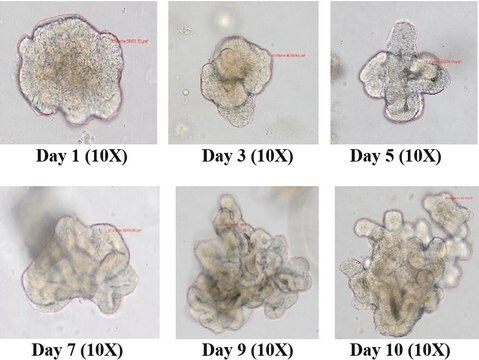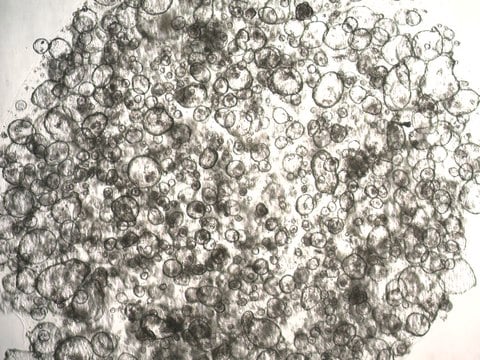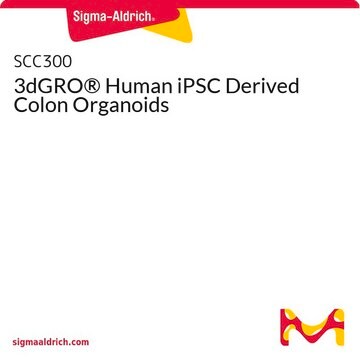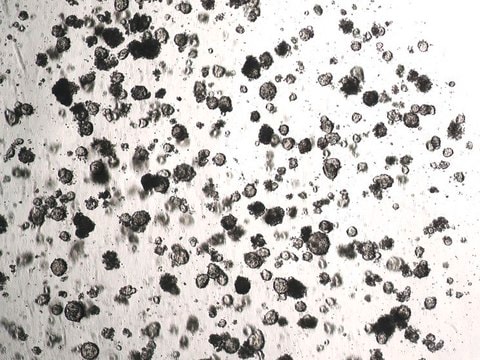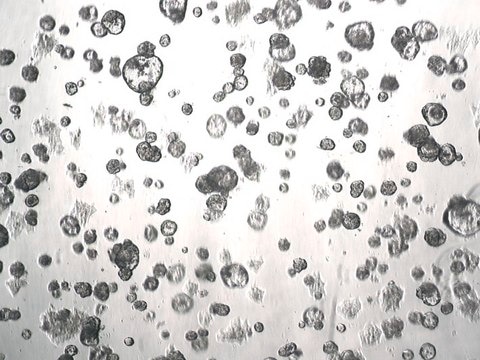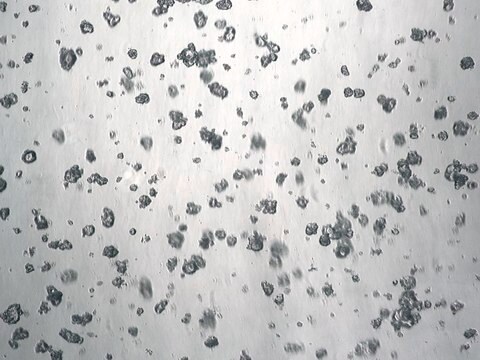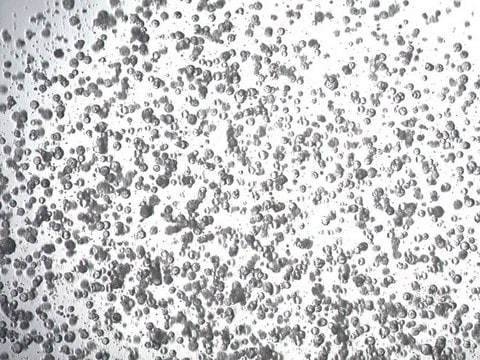SCC721
3dGRO® Colorectal Organoids (CSC.240)
Synonyme(s) :
Colon Organoid, Colon Tumor Organoid, Colorectal Cancer Organoid, Human CRC Organoids
About This Item
Produits recommandés
Source biologique
human
Niveau de qualité
Conditionnement
vial of ≥1500 organoids vial
Fabricant/nom de marque
Millipore
Technique(s)
cell culture | stem cell: suitable
Conditions d'expédition
liquid nitrogen
Température de stockage
−196°C
Application
- Viability: >=1500 viable organoids/vial
- Organoid Growth: Pass
- Cells are tested negative for infectious diseases by a Human Essential CLEAR panel by Charles River Animal Diagnostic Services.
- Mycoplasma Contamination: Negative
- STR Profile: Pass
Caractéristiques et avantages
Description de la cible
We are now offering a comprehensive biobank of highly characterized tissue-derived human gastrointestinal organoids from normal and diseased patients. The intestinal organoid biobank contains over 50 highly characterized intestinal organoids from both normal and diseased patients derived from multiple regions of the digestive systems including small intestine (duodenum, ileum), stomach, rectum and colon.
Cell Line Characteristics
- Sex: Male
- Age: 83 Years
- Organ: Colon (Primary Tumor)
- Disease: Adenocarcinoma (KRAS Mutation: Wildtype)
Stockage et stabilité
Autres remarques
3dGRO® organoids were derived utilizing HUB Organoid Technology.
The purchaser of this product shall agree to HUB′s terms of use, which shall be separately acknowledged and accepted by such purchaser, prior to transfer of this product to purchaser.
Informations légales
Clause de non-responsabilité
Code de la classe de stockage
12 - Non Combustible Liquids
Classe de danger pour l'eau (WGK)
WGK 2
Point d'éclair (°F)
Not applicable
Point d'éclair (°C)
Not applicable
Certificats d'analyse (COA)
Recherchez un Certificats d'analyse (COA) en saisissant le numéro de lot du produit. Les numéros de lot figurent sur l'étiquette du produit après les mots "Lot" ou "Batch".
Déjà en possession de ce produit ?
Retrouvez la documentation relative aux produits que vous avez récemment achetés dans la Bibliothèque de documents.
Notre équipe de scientifiques dispose d'une expérience dans tous les secteurs de la recherche, notamment en sciences de la vie, science des matériaux, synthèse chimique, chromatographie, analyse et dans de nombreux autres domaines..
Contacter notre Service technique